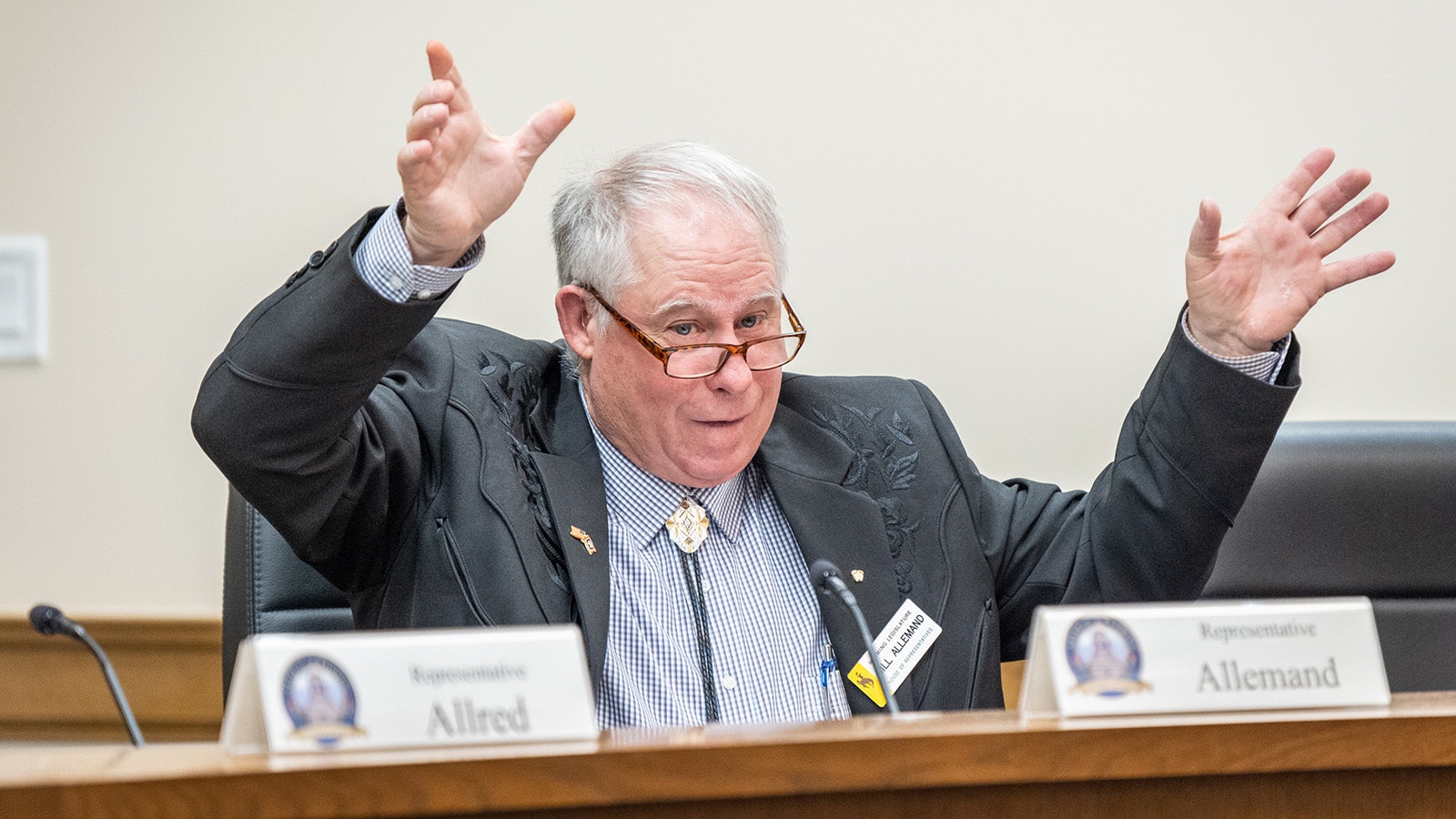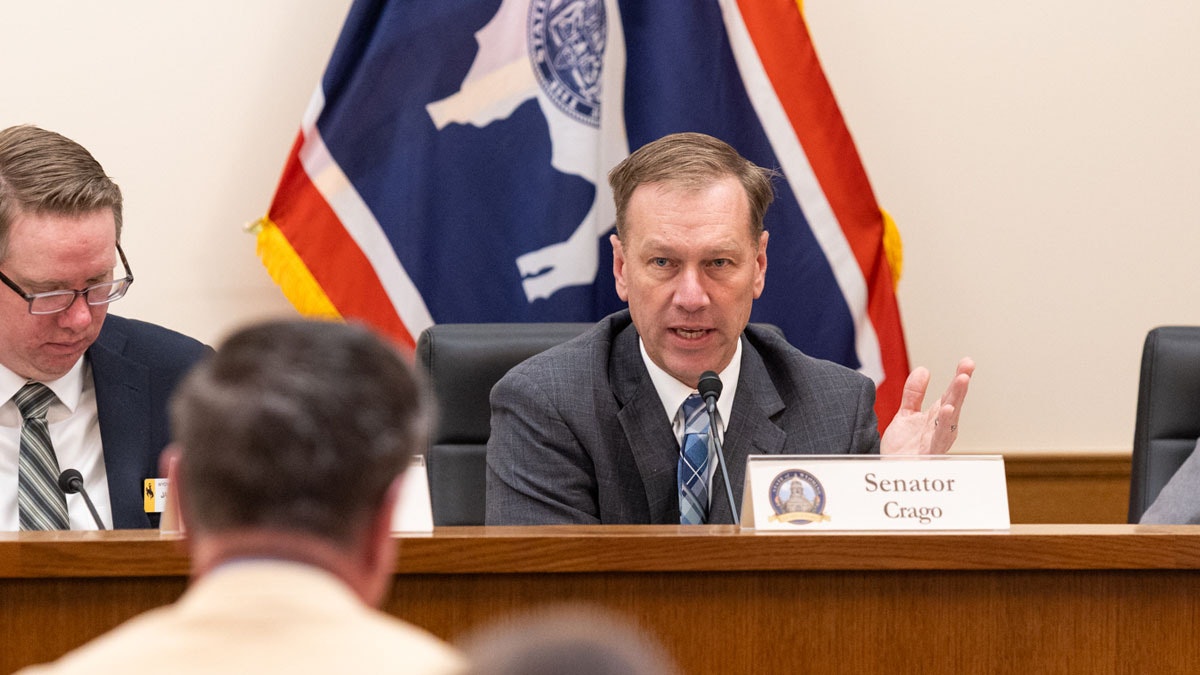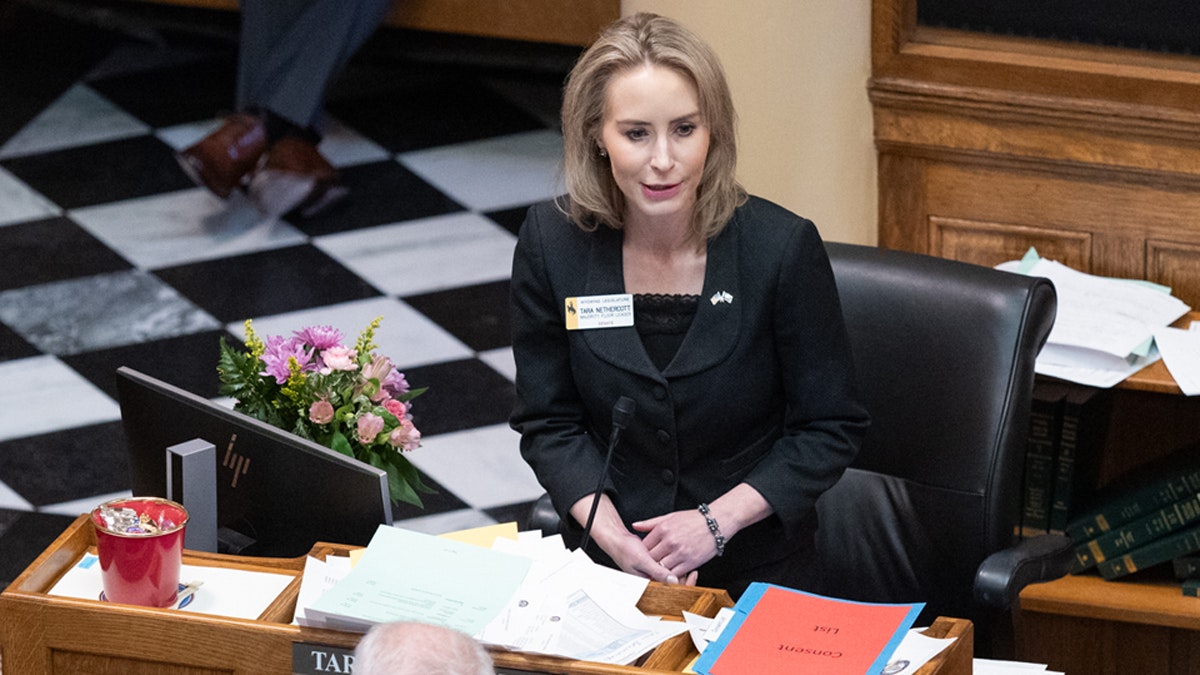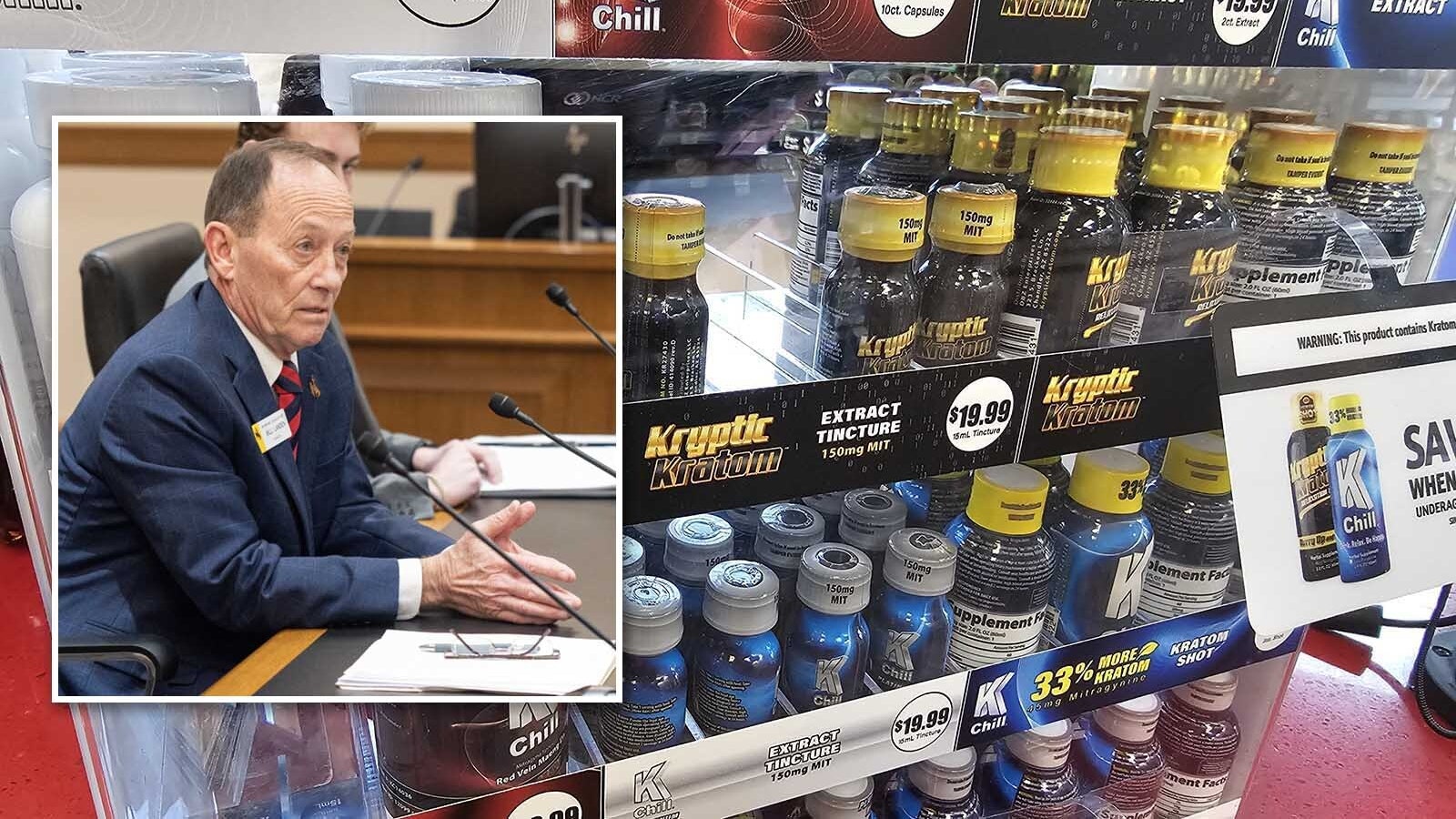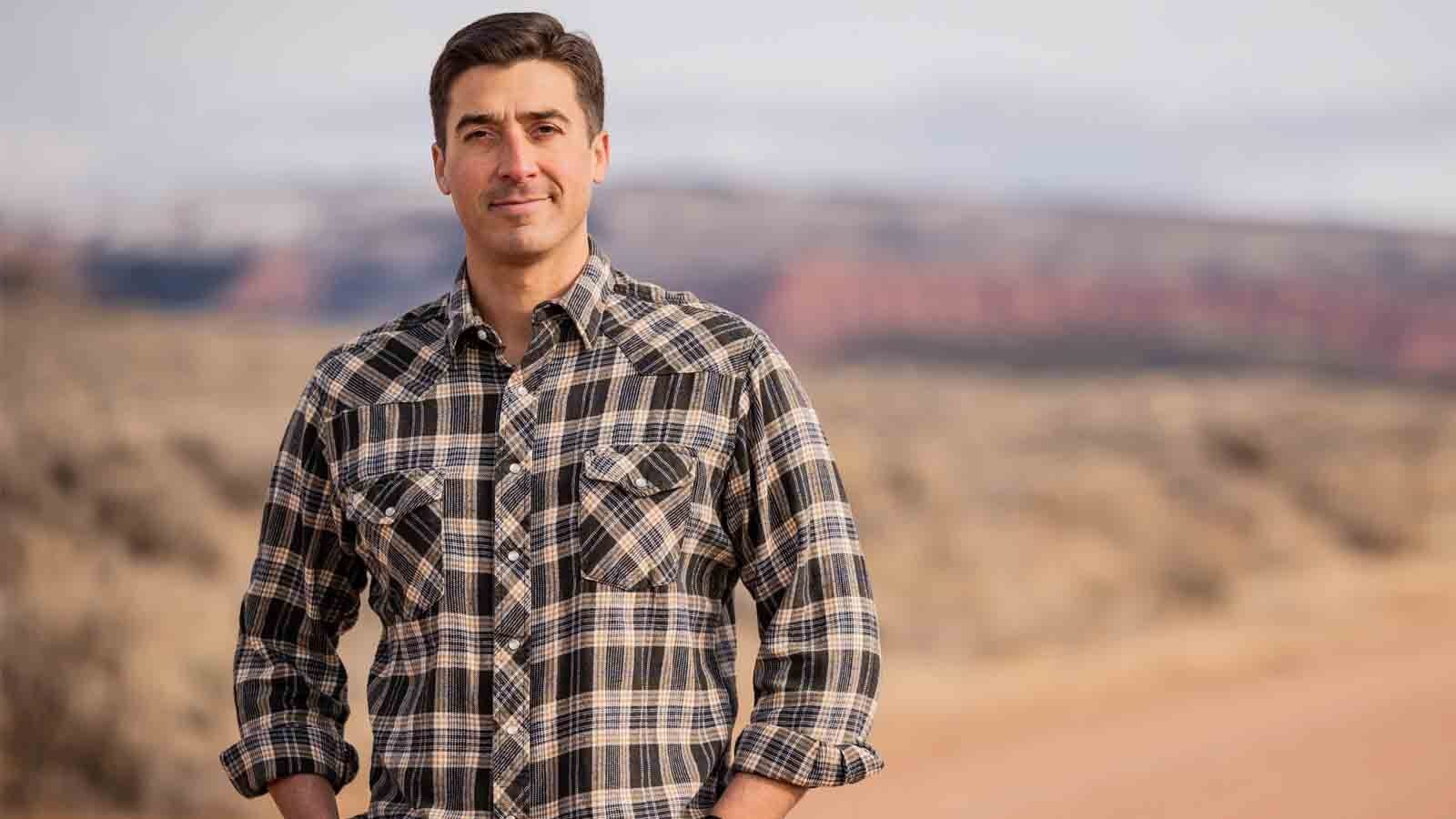State Rep. Bill Allemand, R-Midwest, didn’t mince words about President Joe Biden’s 30x30 plan during a Wyoming Freedom Caucus town hall on Tuesday night.
“If this 30x30 plan is implemented, we will be under more tyranny and oppression than the colonists were under King George,” Allemand said. “We must mobilize and stop this now.”
The 30×30 project is a pledge to set aside 30% of American wildlands for conservation by 2030 and 50% by 2050 to fight climate change. What is defined as “conservation” is unclear under the plan.
During a previous town hall, Allemand said the plan is a mistake of historic proportions, describing it as “probably the biggest disaster in the history of the United States, affecting more people than the Civil War, Pearl Harbor or 9/11 combined.”
Allemand said Tuesday that his opinion of the plan has evolved from being scared about it to petrified.
During Tuesday’s virtual town hall, Freedom Caucus members also equated the Bureau of Land Management’s proposed plans for millions of acres of public land in the Rock Springs area to the 30x30 effort.
Some like Rep. John Winter, R-Thermopolis, have asserted that the BLM plan is based on President Joe Biden’s 30x30 project, a conservation plan endorsed by the administration and other global leaders.
Winter said he hopes Wyoming residents will approach 30x30-type proposals with great skepticism.
“It is an effort to camouflage the true purpose, which is total government control,” he said of the 30x30 plan.
BLM ‘Bait-And-Switch’
Although he used somewhat softer language than Allemand, Gov. Mark Gordon sent a letter to BLM Director Tracy Stone-Manning on Tuesday, requesting that the BLM withdraw its Rock Springs Draft Resource Management Plan with its preferred alternative and accompanying draft environmental impact statement.
He described the plan as a “hastily constructed hamfisted draft.”
“Issuing a thought-through draft preferred alternative rather than ‘building the plane as we try to fly it’ may actually result in something that could fly,” Gordon wrote. “What is before us to consider will not.”
The Rock Springs plan has been the result of 12 years of efforts through three presidential administrations and a multitude of public meetings.
There are four draft options under the plan, and the BLM prefers “Alternative B,” which takes the most aggressive conservation action. The BLM is still taking public input and substantive comments could steer things away from this preference.
Gordon described Alternative B as an “outlier” and “bookend” not originally intended for implementation, and said choosing this option is a “bait-and-switch” that flies in the face of community input.
“It is our considered opinion that the Bureau of Land Management should withdraw this draft, reconsider the alternatives making use of the considerable stakeholder and public comment over a number of years, and issue a fully supported and considered preferred alternative,” Gordon wrote.
Jessie Rubino, Wyoming state director for the Freedom Caucus Network, said the BLM revealed during a public meeting in Marbleton on Tuesday that it has received more support to Alternative B than opposition, the former which has been provided by mostly out-of-state residents.
The Wyoming Outdoor Council has supported the proposed RMP, posting on its website Aug. 31 that it finds it “extremely favorable to conservation” and “aligns closely with the Red Desert values” the group stands behind.
“With its strong protections for wildlife, cultural values, wide-open spaces and recreation, there’s a lot to be excited about in the draft RMP,” Outdoor Council Program Director Alec Underwood wrote. “The draft includes four management alternatives, and the BLM’s preferred alternative affords the highest levels of protection.”
The draft proposal, maps and other information are available online, as is a guide for filing comments, which can be submitted until at least Nov. 16.
Bear advised people to be very specific in their remarks and how they are being personally impacted by the plan.
30x30-Type Efforts
The Vermont Legislature has passed legislation implementing its own version of the 30x30 plan and governors in New York and New Mexico have also expressed support for the plan.
Allemand mentioned how The Netherlands, one of the largest agricultural producers in Europe, drastically cut the use of nitrogen fertilizer. According to The Guardian, a 2020 commission recommended reducing nitrogen-based pollution in Holland by 50% by 2030 and a follow-up report proposed asking 500 to 600 peak polluters — mostly livestock farmers — to shut within a year.
Allemand recently attended a summit in Texas opposing the 30x30 efforts, where three Dutch farmers were in attendance. He said they were “heartbroken” about what has happened, sharing stories of mass suicide among their country’s agricultural community.
Allemand said public unrest has led The Netherlands to resume its nitrogen use.
Push Against The RMP
Freedom Caucus Chairman Rep. John Bear, R-Gillette, believes current land management in Wyoming effectively protects the environment and that all of the changes proposed by the BLM will take away the livelihoods of hundreds of ranchers in Wyoming.
“Anything less than option A, where things are at least kept at status quo, is unacceptable,” Bear said. “We should not be giving up any ground on this issue to the federal government.”
Alternative B would limit livestock grazing and curtail oil and gas production on federal lands in southwest Wyoming. Winter believes this would ultimately “kill” the Wyoming economy.
Plan B includes future wilderness study areas that could be considered for future introduction as national wilderness areas. Wilderness areas prohibit the use of motorized vehicles or equipment. Winter said this would severely impact hunters who rely on ATVs to get to their hunting spots.
“Near as I can tell, it’s a real disaster,” he said.
Bear said not only Gordon, but also Attorney General Bridget Hill, needs to immediately start pushing against the BLM’s plans. In his letter, Gordon doesn’t directly threaten legal action, but does say it will be Wyoming’s intent to make sure the RMP stands up to “careful public and legal scrutiny.”
He also warns that the plans put the state’s relationship with the BLM in jeopardy.
“One is left to assume that the partnership was found to be less valuable than playing to some other audience than those most affected by the people and the ecology these decisions would most impact,” Gordon wrote.
Conservation Leases
The Biden administration and BLM say they support allowing federal lands to be leased by conservation groups.
Bear said if that happens, it will set a precedent for more conservation leases in the future. He suspects wealthy people will take up the conservation leases and use them to offset their carbon output elsewhere.
Winter believes allowing conservation groups to lease lands previously used for grazing contradicts the Taylor Grazing Act of 1934, which led to the creation of grazing districts.
Regulations
Winter said he was employed by the BLM in the 1960s and ’70s as a range conservationist and wild horse specialist, spending several years in the Rock Springs Field Office. These duties included writing an EIS.
He believes the BLM has changed significantly since that time and that natural resource issues aren’t addressed in the EIS of the Rock Springs Resource Management Plan. The BLM plan would substantially eliminate mineral development of more than 2 million acres.
The Rock Springs BLM field office oversees roughly 3.6 million acres in Wyoming, of which 1.8 million acres of the draft RMP is designated as “areas of critical environmental concern.”
The plan calls for protecting the wildlife habitats, cultural sites and wildlands of the Northern Red Desert and Big Sandy Foothills, areas where supporters say there is almost no potential for oil and gas and where renewable energy would also be out of place.
Under Alternative B, not even fire trucks would be allowed in certain areas to fight fires because of the vehicles’ carbon output, a stipulation Bear described as “absolutely ludicrous.”
Winter, a former outfitter, believes the plan will also decimate the hunting and outdoor recreation industries of southwest Wyoming.
Rep. Pepper Ottman, R-Riverton, said Wyoming has done an adequate job of preserving its land for conservation. In 2022, she proposed legislation that put restrictions on state agencies to give up power to Biden’s executive order and to oppose the measure as much as possible. Ottman brought another bill that required people who want to give up their land for conservation leasing must engage in a permit process with their county government beforehand.
Both bills were defeated and haven’t been discussed again, but Ottman said she plans to bring them back.
“This goes very very deep into so many different industries, people and organizations, 501(c)(3)’s and lots and lots of things,” Ottman said. “It’s something that we the people need to be aware of.”
Many federal conservation efforts have led to more restrictions on the type of activities that can take place on the land.
Allemand wants any federal public land in Wyoming that is turned over to the state to remain public with full access, or have public access added in other areas to avoid a net-loss. He also plans to bring legislation in 2024 that would allow overnight camping on state trust lands in Wyoming, an action Bear said could also take place through an executive order from Gordon.
Leo Wolfson can be reached at leo@cowboystatedaily.com.

